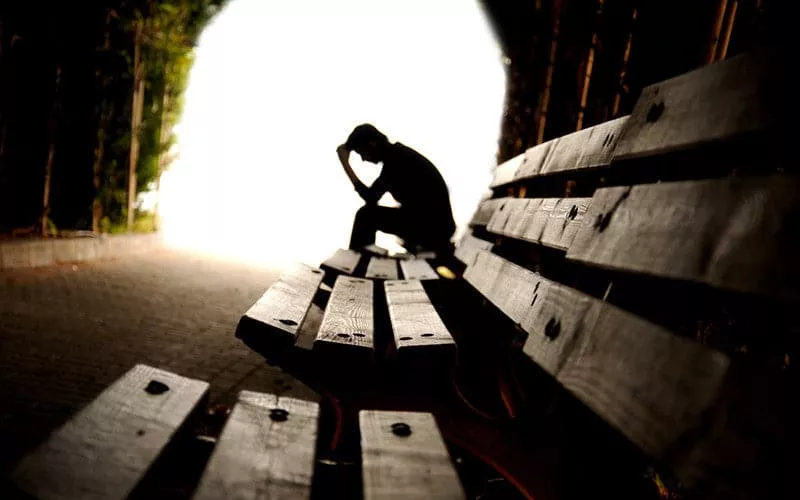News
Symptoms of Depression
Here we identify a few of the typical traits experienced by someone suffering from depression. Very often, the symptoms of depression can be masked or passed off as something else. Not all depression needs action; mild and moderate depression will pass; it is good, however, to recognise the signs and take care not to exacerbate the symptoms of depression.
Experiencing Depression? You’re Not Alone
According to the August 2009 edition of “Scientific American,” research has found up to 50% of adults in America are classified as having suffered from depression at some point in their life.
Moreover, the Centres for Disease Control and Prevention estimated that one in ten adults suffers from ongoing depression symptoms. While either fleeting or permanent, diagnosis is the first step to treating and overcoming depression.
The Initial Symptoms of Depression
Temporary feelings of sadness and an overall sensation of being blue are common throughout life; however, if these brief periods of downtrodden behaviour find their way into your daily life, clinical depression may be the culprit.
research has found up to 50% of adults in America are classified as having suffered from depression
Outlook on Life
Diagnosing clinical depression is no easy task. There is not one human who lives every day with unwavering optimism. That being noted, a common symptom of depression is persistent and sometimes overwhelming.
Sensations of sadness, anxiousness or feeling empty are all symptoms of depression. If these symptoms persist, help should be sort.
Physical Symptoms of Depression
Not all depression symptoms remain in mind. Depression can affect the entire body, both physically and emotionally. Depression often translates into few or lasting fatigue and sleep schedule disturbances.
Not all depression symptoms remain in the mind. Depression can affect the entire body
A sense of feeling continually ‘rundown,’ out of energy, and lazy to the point every action is a great effort. This state of mind and well-being can quickly start dramatically affecting other body parts. The digestive system seems particularly affected by sufferers’ mental health; gastrointestinal disorders and irregular bowel movements can exacerbate a weak state of mind.
Server headaches can ensue, leading to more serious physical conditions and further weakening the sufferer’s mental well-being. In addition, muscular aches and pains, colds, flu-type symptoms and other ailments which signify a sufferer is generally unwell can be present.
Having self-esteem is an essential part of being human
Of course, as well as these commonly experienced physical symptoms, it is widespread for someone experiencing bouts of depression not to suffer any physical signs whatsoever. In some cases having no physical symptoms makes diagnosing depression more difficult.
Self-Esteem & Fighting Depression
Self-esteem is essential to being human and experiencing a complete and balanced life. Depression takes different forms for each sufferer, but a common symptom is a lack of self-esteem.
When depression starts to take hold, many people can find how they value themselves can take a knock. Depression can rob people of their self-worth.
Self-Esteem & Clinical Depression
Strong feelings of worthlessness often diagnose clinical depression or feelings of helplessness and loneliness. These are emotions that are attenuated by low self-esteem.
Some may experience extreme feelings of guilt over past situations or experiences. Since many feel isolated from the world around them, it’s not uncommon to find yourself missing more days of work, school or backing out of responsibilities, and generally withdrawing from day-to-day life.
In withdrawing from a routine and isolating oneself from those who love you, self-esteem can plummet, leading to a range of physical health symptoms previously outlined.
When to Seek Help
Truly understanding whether you’re going through a temporary period of feeling down or suffering from clinical depression is not easy to call to make; it is something that should be decided by a qualified doctor or healthcare worker.
Whether reading this for yourself or out of concern for a friend or loved one, depression is a recognised illness, its symptoms and traits are well documented, and help is out there.
Often sufferers feel ashamed to seek help or are unaware they are sufferers. In these cases, rather than visiting your family Doctor who has known you since childhood, visit a hospital in another area, or drop in a clinic.
Don’t do nothing; the symptoms of depression are well-known, and proven treatments are available. Visit mind a support website or to talk with someone now, call the Samaritans in the UK on 08457 90 90 90. Also, HelpGuide.Org have some sound advice, as do the NHS.
Good luck.

